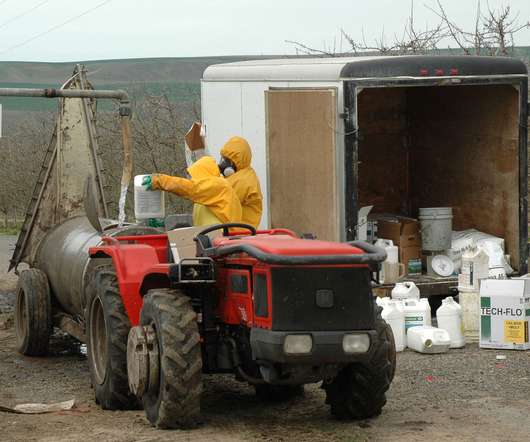New Report Highlights Pesticides’ Overlooked Climate Connection
DeSmogBlog
JANUARY 17, 2023
Not only do pesticides directly contribute to the climate crisis, but a changing climate is likely to intensify pressure from agricultural pests and decrease plant resiliency, resulting in greater pesticide usage and therefore further greenhouse gas emissions, according to a new report.















Let's personalize your content